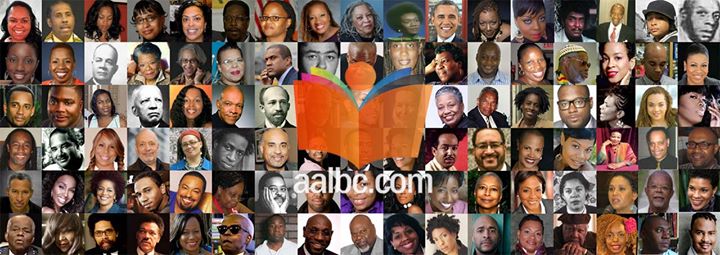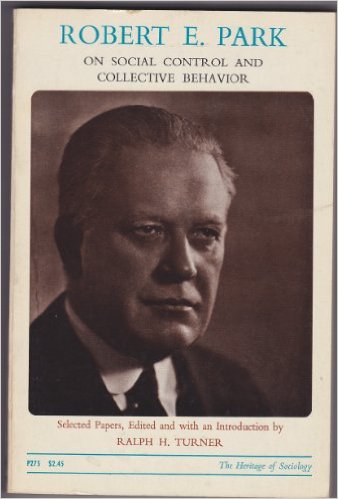-
Posts
13,114 -
Joined
-
Last visited
-
Days Won
715
Content Type
Profiles
Forums
Blogs
Events
Everything posted by Troy
-

Should the U.S. provide reparations for slavery and Jim Crow?
Troy replied to Troy's topic in Culture, Race & Economy
Pioneer all African scholars say that Africans sold other Africans into slavery, I don't think anyone who has studied the subject thinks this is debatable. Also, if you think the American people, Black ones included, would approve some form of reparations for Kenyan, or any African, immigrants?! Negro puhlese! I do think Carlton's idea mentioned above and in his research paper that; "...supports the creation of “Jim Crow reparations.” Distinct from the reparations for slavery considered herein, Jim Crow reparations would be based on federal and state governmental discrimination against blacks and their immediate families during the Jim Crow Era." Now this might be something worth considering, for the people directly impacted are still alive. But still White folks would fight this tool and nail, for the money will come from everyday working stiffs, not the oligarchy who whose families directly benefited from the enslavement Africans. -

Should the U.S. provide reparations for slavery and Jim Crow?
Troy replied to Troy's topic in Culture, Race & Economy
No one will ever receive a check, or any other form of compensation, from the U.S. Government for compensation for the enslavement of our ancestors. White people don't even want to pay for educating, housing, or providing medical care for each other. Anyone who thinks white folks will pay Black folks for something that ended a century and a half ago is out of their mind. @Pioneer1, do you think President Obama should receive reparations if they were being provided? -
Well you can fire me Del, cause, and I know I'm in a minority here, but "reality" TV never ever interested me. I take that back I did watch an episode during a party for Randall Pinkett, the brother who won one year. A buddy agented his book. Actually I'm surprised the media is not parading Omarosa, Randall and all the other Black Apprentices--maybe they have a gag order in their contracts :-) Listening to the news there seems to be more reluctance than I originally thought, by some in the GOP to embrace The Donald. The republican party is a disaster. They better embrace their boy and hope Hillary does not get indicted if they want a chance to win the whitehouse.
-

Black Author Secrets: How I Make $2,500+ in Book Sale Every Month
Troy replied to Troy's topic in Black Literature
I purchased the book too, in fact I purchased two copies because I lost the first .pdf file (due to a bad hard drive). I actually read the book last night. in about an hour or so. I too was curious to learn which tools he used to sell in the pdf version. I had to print the ebook out though, I still prefer paper. Given the large font, broad margins, and liberal use of full page images the page count was well over 100 pages when it could have easily been half the number of pages. Then again I could have printed the document two pages to a side and that probably would have been a better use of paper. The pdf was definitely optimized for reading on a handheld or inflate page count he was also a recommendation made in his book. If you read the book, Dante describes you how he setup his site to sell the pdf. He used shopify which also watermarks the pdf file for you. I was also interested in his recommendations for book cover designers, he points out several recommendation available through Fiverr. On the 2nd purchase I too tried to save to dropbox too, but was unable to do it. I assumed I did not have the space or that I was some other problem that was on my end, but since we both had problems I could have been on the Shopify side. I definitely like Dante's recommendation of selling directly. You can price the product for less and increase your profit margins over selling through Amazon. But as you suggest you are faced with the challenge of getting people to buy directly from you (or an independent affiliate selling on your behalf), when folks are so wedded to Amazon. Dante seems to have addressed this problem by dramatically reducing the price of the ebook. I'll be looking into the Shopify software it will be cool if they also have an affiliate program that would allow authors to give others the opportunity to sell their ebooks and make some money. -
Should the U.S. provide reparations for slavery and Jim Crow? Carlton Mark Waterhouse, Indiana University Editor’s note: This article is part of our collaboration with Point Taken, a new program from WGBH that will next air on Tuesday, May 10 on PBS and online at pbs.org. The show features fact-based debate on major issues of the day, without the shouting. The debate over reparations in the United States began even before slavery ended in 1865. It continues today. The overwhelming majority of academics studying the issue have supported the calls for compensating black Americans for the centuries of chattel slavery and the 100 years of lynching, mob violence and open exclusion from public and private benefits like housing, health care, voting, political office and education that occurred during the Jim Crow era. Despite this academic support, the nation is arguably no closer to consensus on this issue than it was 150 years ago. Not surprisingly, my research has shown that the idea remains widely unpopular with white Americans and overwhelmingly supported by African-Americans. The example of a Founding Father ‘Should the U.S. pay reparations to Black Americans’ is the question Point Taken debates May 10 at 11 PM E/10 PM C on PBS The debate over reparations began not long after the country was founded. In 1790, Benjamin Franklin committed to instruct, employ and educate the children of those he had set free from bondage. Franklin saw this as a way to “promote the public good, and the happiness of these our hitherto too much neglected fellow-creatures.” After slavery ended, Senator Thaddeus Stevens of Pennsylvania proposed the reparations bill in 1867. It provided 40 acres of land to each adult male and to each female who was the head of a family. In addition, it called for funding to construct a homestead on the land. Stevens saw reparations as necessary to avoid racial hatred, inequality and strife. Callie House, who was born enslaved, took up the charge in the 1890s under the auspices of the National Ex-Slave Mutual Relief, Bounty and Pension Association. She was arrested and ultimately imprisoned for her efforts in 1917. She was accused of raising money to support a cause that the government argued was so implausible as to constitute fraud. The organization had built a membership in the tens of thousands from 1897 to 1898, and continued to grow thereafter. Scholars pick up the cause Slave market in Atlanta, Georgia in 1864. The case for reparations for African-Americans was taken up in academic and popular circles more than 40 years ago. Yale Law Professor Boris Bitkker gave the first significant academic treatment of the issue in his book “The Case for Black Reparations” in 1972. The book followed the public demand for US$500 million in reparations from white churches and synagogues by civil rights leader James Foreman. The issue remained on the political agenda of some black nationalist organizations like the the Nation of Islam and later the National Coalition of Blacks for Reparations. It was also part of the research agenda of scholars such as Bernard Boxxil and Howard McGary. Boxill and McGary provided a basis in moral philosophy for black reparations that future scholars expanded into other disciplines. In 2001, well-known anti-apartheid activist Randall Robinson published his book “The Debt: What America Owes to Blacks.” After its publication and popular success, a new group of academics began to give significant attention to the issue. A popular movement also arose that sparked lawsuits relating to slavery and state-supported racial violence in Tulsa, Oklahoma. All of the suits were dismissed by the courts, causing many to conclude that legislative action was the only possibility for redress. The legislative approach had succeeded previously in one instance. Years earlier, the Florida legislature enacted legislation that made Florida the first and only state to provide reparations for state-supported mob violence against African-Americans during the 1923 Rosewood massacre. A number of cities and universities began investigating their historic relationship to slavery. Several states issued apologies for slavery. The United States House of Representatives followed suit in 2008. The Senate joined in the following year. The 2014 article by Ta Ne-hisi Coates in The Atlantic represents a recent resurfacing of the issue. My current research explores the commonality between the views held by the majority of American whites on this issue and the views of dominant ethnic and racial groups who oppose redress for injustices and harms inflicted in other countries. Social hierarchy and reparations globally Following World War II and the extermination of Roma peoples alongside Jews in death and concentration camps, the Federal Republic of Germany refused redress to the Roma at the same time it provided extensive reparations to Jewish victims. Australia’s rejection of reparations in response to the theft of over 100,000 indigenous children over the course of 60 years under federal and state laws provides another example. Japan’s refusal to provide redress to the Korean woman forced into sexual slavery during World War II is one more. In each case, the rejection of redress corresponds to the low social status of the victims. This reflects a phenomenon social psychologists identify as “social dominance.” It describes a state in which certain groups have a disproportionate share of a society’s “negative social value” such as incarceration, poverty and substandard housing. Others in the same society have a disproportionate share of “positive social value” including education, political power, wealth and quality housing. A ledger recording the sale of slaves in Charleston, South Carolina. Yale University Groups enjoying the benefits of social dominance often reject claims by subordinate groups, even when they are rooted in horrible and well-established historic injustices. The reasons for rejecting these claims vary, but they ultimately flow from the perceived flawed character of the group members. Following World War II, German Chancellor Konrad Adenauer identified the Roma as a “race of criminals” who in no way deserved reparations. In Australia, former Prime Minister John Howard rejected reparations based on the idea that “contemporary Australians should not be held responsible for mistakes of the past.” An interesting position in light of the continuation of the practice into the 1970s. In Japan, the claim was made that the issue of the “Korean comfort women” was settled at the end of the war by the agreement to end hostilities. It is worth noting that in Germany and Australia, both groups had disproportionately high incarceration and poverty rates and were broadly viewed as having cultural and moral deficits. In Japan, a similar view is illustrated by the recent remarks of a government official that the victims of the years of enslavement were actually Korean prostitutes who “volunteered.” Uprooting racial subordination in America In the same way, white Americans' rejection of reparations has little to do with the oft-repeated challenges that “my family did not own slaves” or that “the debt was paid in the blood of the Union and Confederate soldiers.” African-Americans fall at the bottom of America’s racial and social hierarchy. That reality has routinely and popularly been explained as a result of their inferiority. Initially the claim was rooted in genetics. Today it is based primarily on a theory of cultural deficiency. Until these ideological bases of racial subordination are acknowledged and rejected, no “case for reparations” will convince the majority of white Americans that reparation are due African-Americans. A clear example of this can be found in the hundreds of comments to my recent New York Times editorial on the issue. The comments reflect the negative views of African-Americans held by many readers as well as an intense emotional rejection of reparations. My proposal looks at slavery and the Jim Crow era separately. I draw the distinction to prevent the memory of the enslaved from being overshadowed by the more recent injustices of the Jim Crow Era. I believe each group of victims warrants specific attention and an appropriate response. Compensatory reparations should be limited to the harms of the Jim Crow Era. For slavery, I suggest that reparations take the form of monuments, museums, memorials and educational programs that are currently lacking in this country. One early step would be the creation of commissions at the state and local level that would identify the enslaved, their owners, and any role they played in the development of the state and its industries. This information would be used along with existing research and funded grants to develop appropriate projects to honor the enslaved and to demarcate the contributions they made. A comparable examination should be made at the federal level to note persons of national significance. In light of the centuries-long history of slavery that took place here, we have a great deal to learn and illuminate about this aspect of our shared history. This approach provides the focus needed on the lives of the enslaved, their humanity, and their indispensable contribution to America’s growth and development. At the same time, the proposal attends to the survivors of the governmental abuses inflicted over the course of 100 years following slavery’s end who remain without recognition or redress. Carlton Mark Waterhouse, Professor of Law and Dean's Fellow , Indiana University This article was originally published on The Conversation. Read the original article.
-

Are Self-Help Sellers Similar to Weight Loss Pushers
Troy replied to Creative Artist Yvonne's topic in Black Literature
No. These things have become the bane f the internet. I regularly have to remove these links from my website. This tactic works; it is cheap and easy to execute on a large scale so finding victims is easy. Plus there is no penalty for getting caught, so the practice will continue. I believe this type of thing will increase as these hustlers get even better and we will become easier marks. So keep spreading your message, maybe you will help someone. It is much better to say something than nothing at all. -
One World publisher and editor-in-chief Chris Jackson acquired world rights to the two new titles, including audio rights, from Gloria Loomis of the Watkins/Loomis Literary Agency. He will edit both books. Jackson was Coates's editor at Spiegel & Grau when Coates won the 2015 national Book Award for Nonfiction for Between the World and Me. Read the rest of the article at Publishers Weekly
-
@Delano, I did not write the statement above that you've attributed to me. I'd appreciate it if you posted a link to where you found it, and attribute it to the person who actually wrote it. Besides, what point are you trying to make by copying what someone else wrote, posting a seemingly unrelated photo, and adding no comments of your own?.
-

92nd Day of #Blackhistory: A Brother Invented the Super-Soaker
Troy replied to Troy's topic in Culture, Race & Economy
Now that I think about it we did that too :-) -
Again I believe Hillary is getting beat up because of her gender, despite her white skin. Consider this; Bill Clinton engaged in a variety of activities that embarrassed the nation and hurt the Black community and he got a pass while doing it. Today Hillary is getting beat up and called to account for all the stuff Bill did--talk about a double standard. I think Obama beat Hillary primarily because he was selling hope and change--something Hillary simply can never do. This is tragic because she may be a great president given the opportunity. As far as intellect I'm not sure Obama is that much smarter that Hillary; assuming he is smarted than her at all. As far as oratory skills, Obama never wowed me personally but I guess this is purely subjective. Donald is selling a hope and change too, and he is making no attempt to come across as smart (I doubt he is capable of it). No one will confuse him with a great orator either. The other issue is we usually switch parties after 8 years; republicans have an advantage here. I agree there are many factors in play. But again, Hillary represents the status quo. Trump represents everything Hillary is not. Now that the republicans are starting to line up behind Trump, he will be a formidable candidate for president. Meanwhile, Bernie shows no sign of dropping out so while the democrats are duking it out, the republicans will continue to build momentum. Besdies, a white man beats a white woman everyday of the week...
-
I first met Dante, the author of the book below, over a decade ago at the time he was a wonder kid, a young entrepreneur who'd carved out several successful niches on the Black World Wide Web. He was in Black Enterprise, often quoted, the whole nine. He would later publish a book through Hay House's Smileybooks called Black Business Secrets. Black Author Secrets. Get your copy today before the price goes back up to $4.95! He Dante references AALBC.com as a source. He also practices what he preaches by promoting his book on our site.
-
Putting what I'm about to say in context: I never go to Tweeter to read tweets. I don't have the app installed on my phone. I do post tweets, but the majority of those are automatically generated without my involvement. Just now, I decided to go to Twitter and read what Donald Trump was tweeting. I was motivated to do this because anytime I turn on the radio to listen to conservative or liberal talk, they all comment on The Donald's tweets. A couple of hours ago a guest on the Karen Hunter Show was talking about Donald liking "the Mexicans" because he likes the taco bowls made in the restaurant in his office. Note to liberal radio talk show hosts: If you really do not support Trump stop talking about him so damn much. So I did something which is essentially against my religion; I visited Donald's twitter account to see what I'd find. I did find the tweet about the Taco Bowls. The guest misquoted the tweet making the tweet sound much worse than it was. LOL! I know that's right Donald.
-
13th National Black Writers Conference Airs on C-SPAN Book TV Panel discussions and roundtable conversations from 13th National Black Writers Conference will air on C-SPAN Book TV: Saturday, May 7, and Sunday, May 8, 2016. See this information on our website: http://centerforblackliterature.org/nbwc-c-span-book-tv/ for schedule and times.www.C-SPAN.org Check local TV listings. The theme of the 2016 National Black Writers Conference is titled “Writing Race, Embracing Difference.” The conference was held at Medgar Evers College of the City University of New York, in Brooklyn, New York, from March 31 to April 3, 2016. Panels and roundtable conversations included topics such as “Decoded: Hip-Hop and Youth Culture,” “Creating Dangerously,” and “The Politics of Race and Gender in the Literature of Black Writers.” Professors Victoria Chevalier, Wallace Ford, and Donna Hill, who were moderators at Conference, are faculty at Medgar Evers College. BookTV presents coverage of the 13th National Black Writers Conference on C-SPAN2. The conference was held at Medgar Evers College in Brooklyn, NY. Programming will include: Day One: Saturday @ 1:30p ET (Re-air Sunday @ midnight) Decoded: Hip-Hop & Literature and Youth Culture – A Panel Discussion Featuring – M.K. Asante, Michael Eric Dyson, Joan Morgan, Marcyliena Morgan, and James Paterson The Politics of Race & Gender in the Literature of Black Writers- A Conversation Featuring – Paul Beatty, Cora Daniels, and Wallace Ford Day Two: Sunday @ 1:30p (Re-air Monday @ 4a ET) Creative Writing Programs and Writers of Color: Current and Future Trends [Diversity & Writing Programs] Featuring – Donna Hill, Meena Alexander, Bernice McFadden, and Mariahadessa Ekere Tallie Black Writers in the Digital Age Featuring – Akiba Solomon, Farai Chideya, ReShonda Tate Billingsley, and Johnny Temple Shaping Memories: The Odyssey to Adulthood Featuring – Cathie Wright-Lewis, Coe Booth, D. Watkins, and Michael Datcher A Conversation with Michael Eric Dyson and Khalil Gibran Muhammad “Writing Race, Embracing Difference” The above is as of 5/3/2016. Air schedule is subject to change. Please check your local listings.
-
Sure how we perceive others is indeed a function of who we are, but who we are is a function of our culture and our position within the culture. Based upon Zane's statement and the apparent lack of universal female support for Hillary's campaign, I think this reveals our culture's marginalization of women relative to men: Surely a man, even a Black one with little experience, or a reality-TV celebrity with zero experience, would be a better president, than even a strongly qualified woman. I'd also image at Hillary's level the people she encounters, of consequence, will be white males, so they will be the ones in a position to jam her up. Therefore Hillary will encounter more sexism than racism. like most successful women of any so called race.
-
In a recent conversation on this discussion forum I made the following observation, “It is interesting to observe how women are not nearly as devoted to Hillary as Black folks are to Obama.” I usually share quotes from these forums on social media. In reaction to this quote Zane a very popular author wrote the following: “Women tend to be bitter toward other women and don't want to see them succeed. I am riding with Hillary to the end and my stance has never changed. In my life I have faced more discrimination for being female than I have for being black.”—Zane, 213 time AALBC.com Bestselling Author The main reason this struck me is that I have watched Zane's career grow from the beginning. I've witnessed her get a lot of grief for no other reason, that I can conceive, than her Blackness. I've even written about attacks on Zane a number of times. I know if Zane were white she'd be far more popular than E.L James is today. Now the fact that Zane wrote that she gets more grief for being a woman than being Black is almost shocking. I wrote "almost," because I've heard many Black women make this statement, in one form or another, over the years.
-
“If the public don’t attach any particular importance to paying for creative work, they’re unlikely to feel a sense of outrage when a company like Huff Post doesn’t attach a great deal of importance to it either.”—James Bloodworth You know when white men start complaining it is REALLY bad. Salon recently interviewed James Bloodworth on this subject which James writes more about in his book The Myth of Meritocracy.
-

The American Dilemma: the lady among the races.
Troy replied to Dr. Jazzy's topic in Culture, Race & Economy
@Dr. Jazzy, thanks for making this post. It is interesting to see how many people sited Park's work (someone I was unaware of until I read your post). This lead me to work of Gunner Myrdal, Marlon Ross, and other scholars who cite his work. Ralph Ellison wrote of Park, "Dr. Robert F. Park was both a greater scientist and, in his attitude toward Negroes, a greater democrat than William Graham Sumner." This will keep me busy for a while, I can't comment as some of this thinking a new to me. -
Pioneer the board has life because of folks like you; it is simple as that. I was listening to Thom Hartmann (a liberal radio talk show host) this afternoon and he was interviewing a guy who thought Trump might select a sensible, true republican, female running mate. I thought if that happened The Donald may have a fighting chance, indeed with any decent running mate he has a chance. I was in FL a few days ago and some older white guy, almost certainly a retiree, asked me what I thought about the election. He immediately told me he was a Trump supporter. Now the guy was quite friendly and reasonable. This was not some rabid, Obama-hating-racist, rather he was a guy that wanted a change in the way the country is being run, and he thought Donald was the one most likely to bring that change. The other sentiment out there is the one Cynique raised, "Why should I even bother to vote?" This sentiment is shared by many people. I feel that way. I'm not excited about voting for Hillary or Trump. This sentiment is expressed in the "Bernie or Bust" position many Sanders people have taken. This sentiment appears to hurt Hillary more than Trump, as Trump supporters seem more motivated... like Bernie supporters. I think Bernie has a much better chance of beating Donald than Hillary does. Hillary represents politics as usual. Bernie and Donald represent change, much more so that even Obama demonstrated, and certainly promised. This is the appeal of these candidates. The polls support my impression of Bernie being a stronger candidate against Trump than Clinton. Despite all the rhetoric you heard from many people about how important it is to vote, I don't buy into that concept for several reasons. One is that If there is no candidate you are interested in supporting, then why vote? I see no reason to force someone to vote for a candidate they do not support. Since Donald is now the presumptive nominee, it looks like the republicans are getting their party aligned, while the Democrats are going battle it out all the way to the convention. The republicans beginning to show more party unity than the Democrats. 7. Unless Bernie gets the Democratic nod, Trump has a very real chance of becoming president.
-
I doubt Trump will be elected in the general. If seems likely Trump will win the Republican nomination, upping the level of absurdity reached with the Palin ticket. If America elects Trump as Pres, we will have officially "Jumped the Shark," becoming a caricature of our celebrity obsessed self. The POTUS is like the Queen of England, yielding little power beyond ceremonial and doing the bidding of the plutocracy. A perversely curious part of me actually wants to see Trump win; just to see what will happen. It is interesting to observe how women are not nearly as slavishly devoted to Hillary as Black folks are to Obama.
-
Who knew a Brother invented the Super-Soaker? I admit I had no idea. Maybe I've had my head in the sand, or maybe it is simply not common knolwedge. Lonnie Johnson became a multi-millionaire, pretty quickly as a result. Share the story with you a young person in a brand new book for children: Whoosh!: Lonnie Johnson’s Super-Soaking Stream of Inventions by Chris Barton and illustrated by another Brother Don Tate.
-

Thinking Outside the Box to Promote Literacy
Troy replied to Shirley Gale's topic in Black Literature
I understand completely Shirley. Just wanted to make sure folks were aware of the issues. Enjoy your tour! The email I sent is here: http://aalbc.com/blog/index.php/2016/04/30/terrific-books-coming-may-adichie-more/ Please post a link to your article about Wade. -
Well @Sara what did you think of Dyson?
-
-

36th Day of #BlackHistoryMonth: The 3 Bestselling Poetry Books for 1998
Troy replied to Troy's topic in The Poetree
Now you write free verse poetry too huh? Oh Brother... Given your commentary about the subject, it is more likely your free verse masquerading as poetry, not the poets listed or anthologized above. It takes balls to publicly berate an art form which you've demonstrated zero qualifications or talent to critique. Celestial you are starting to sound like our old friend Unkel Ruckus with comments like this "Aside from poetry, this is the precise attitude as to why the Black community has been trashed! 'They do not want rules! They want to behave like wild animals!'" Is that your assessment, or that of the right wings racists whose rhetoric you've apparently come to embrace? No need to reply, the question was rhetorical, for you are completely correct in your assessment: this dialog has become repetitious and is waste of time and energy. -

36th Day of #BlackHistoryMonth: The 3 Bestselling Poetry Books for 1998
Troy replied to Troy's topic in The Poetree
Man you really are fixed and rigid in your thinking Celestial, I doubt you'd ever come to appreciate free verse as as poetry or any other form of artistic expression. I'm sure you know A LOT less about poetry than many of the artist that utilize the form, but hey lack of knowledge never stopped anyone... What do you think about free Jazz? I guess you'd suggest folks like Ornette Coleman don't know anything about musical theory. Those questions I posted were not to suggest that I knew the answers; as you were so quick to point out I don't. The answers are unknowable. If the conditions of the situations I pointed out are unknowable, how can rules be applied to them? What does someone like you do or think when there are no rules? Look, all the other brilliant physicists of Einstein's day were familiar with the same rules old Albert was--perhaps more so, indeed that may have been their limitation. What distinguished Einstein from all the others was his ability to think beyond the rules he did not expand on what was already known he created a completely new set of rules--something someone like you will never do, because of you own self limitations. I wrote "Rules were meant to be broken bruh," not to quote anyone but to make a simple statement, one that obviously went over your head. Why for God's sake does breaking a rule lead to "...behaving like wild, obnoxious, belligerent and uncivilized animals?" Your hyperbolic statements do not strengthen your argument in fact it substantially weakens them. It is one thing to engage in hyperbole for the purpose of braggadocio and you are given to do. But folk simply recognize this as a form overcompensation for other deficiencies... and it is easily ignored. If rules are meant to be broken, this is how we grow as individuals, and evolve as a culture. Accept it man, free verse is poetry







